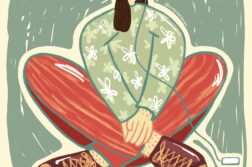Sports as a whole stresses the values of fair play and sportsmanship; both are key tools into making a better life for yourself. Sport programs, for adults and young people, play a major role in preventing gang violence, crime, and drug abuse, all prevalent in poverty-stricken areas. Sports allows individuals to learn hard-work, dedication and team working skills, all skills that will benefit any individual in life. The teaching of these values in sport has been known to have many positive attributes to many communities with research indicating that areas that provide after school or community sports activities tend to have a lower level of crime. This direct link between sports and crime does not go unnoticed, boxing champion Anthony Joshua is a prime example of the great impact sport can have on an individual. In his teens Joshua was involved in street fights and drug deals before his cousin convinced him to try boxing in 2008. Before this, between 2006 to 2010 Joshua had been in trouble with the police multiple times, this included him being on remand in Reading prison for a physical altercation. Joshua has described in many interviews that boxing saved his life and gave him a “second chance at life”; through boxing he learnt all the skills mentioned above that helped him get off the streets to becoming two-time world heavyweight champion. Joshua was a kid who grew up in an estate in Watford, but sports was able to help him move away from a life of crime and poverty which many others fell victim to.
Charities such as Street Games bring sports to poor communities encouraging a better life for young people within poorer communities in Britain. Street Games was founded in 2007 and provides 800 projects weekly across England, Scotland and Wales to teach sport to children most impacted by poverty. Street Games was founded as a reaction to The Sports England Active People Survey which showed that impoverished young people participated in sport half as much as those from prosperous backgrounds. Which is why the core values of the charity is to promote the importance of sports and how it is critical to addressing the issues of those living in the poorest communities. Their own statistics have shown they have encouraged 69% of young people, who have taken part in their program, to get involved in more regular sports activities. As a result of their ‘Doorstep Sport’ programme which former boxer Amir Khan is an ambassador for, Khan proclaims the programme is about “keeping the kids off the streets and giving them a bit of discipline”. These campaigns have been successful in encouraging poor communities to get involved in sport and has taken many kids off the streets, as in poorer areas there is less productive activities for children to do, which has known to encourage crime. Sports brings a sense of belonging and stability to young peoples lives, therefore taking them away from a life of crime they could have fallen into if it weren’t for sports.
Sports can immensely improve the lives of individuals, which is palpable in the story of Alphonso Davies. He was born in a West African refugee camp in 2000 and is now a footballer for Bayern Munich, instrumental in their 3-0 victory against Chelsea last month. Son of Liberian refugees who fled Liberia due to the ongoing war, for the first five years of his life he grew up in a refugee camp, in a hut smaller than a minivan where everyone had to fight for water and food. Davies has labelled football an important part of social life in the camp, uniting families in the refuge and making life more bearable. Football gave inspiration and a glimmer of hope for the people in the refuge camp to make a better life for themselves, though they were living in horrible conditions no one could envisage. Davies’s family eventually passed an interview for a resettlement programme and moved to Canada, where Davies enrolled in the ‘Free Footie programme’, an after-school initative for poor inner-city kids who cannot afford registration fees or transportation to games. This programme aided what has become the greatest football player Canada has to offer, as stated by Canada’s National Post newspaper. Davies’s story is an inspirational one which shows the immense impact sports has on the lives of the underprivileged; the sports programme he signed up to was able to give him the better life he is living today and shows that with sports comes hope.
Sports helps underprivileged groups by giving a sense of hope and belonging, but also by teaching life skills of sportsmanship, teamwork, and discipline. Sports schemes throughout Britain have worked hard to give a better life for those who are in poverty by giving them a fun activity to do instead of going down the wrong path of crime and addiction, which tends to be more prevalent amongst poverty-stricken areas. Cases such as Anthony Joshua and Alphonso Davies highlight the impact sport can have on a young person’s life and how it can transform it. Without boxing, Joshua claims that he would have been in prison, whilst for Davies a life without football may have diminished any hope. Sports thus encourages underprivileged groups by promoting a better quality of life.



